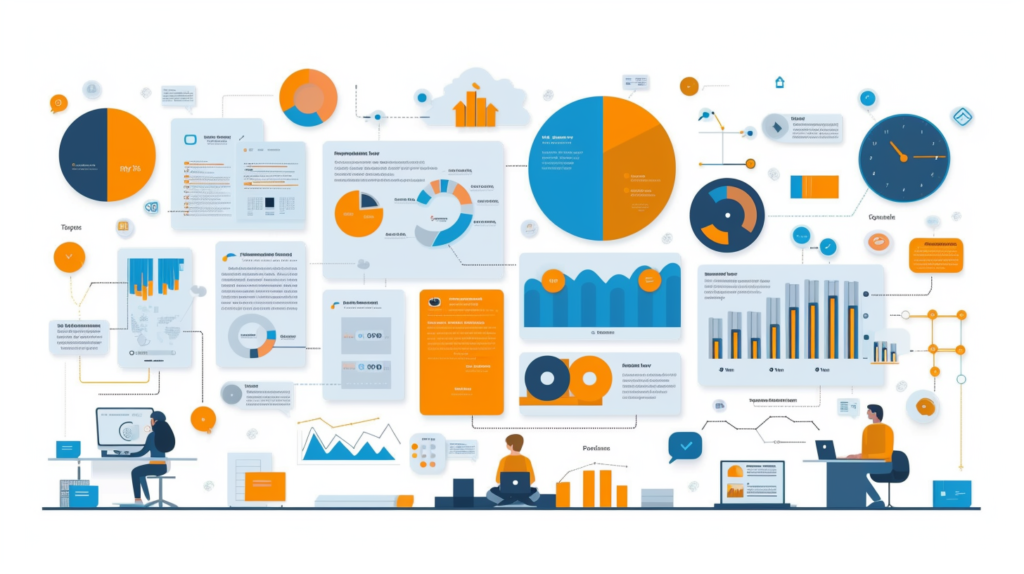Data protection may sound like a technical term, but at its heart, it’s about trust. We live in a world increasingly governed by data: our preferences, habits, and lives are recorded in bits and bytes. Understanding how this data is protected is crucial for anyone using the internet today. But what does data protection really entail, and why is it important?
What is Data Protection?
Data protection refers to the legal and technical measures that safeguard personal data against misuse, loss, or unauthorized access. This idea is as old as data itself, but in recent years, it’s become a hot topic thanks to high-profile data breaches and evolving regulations. Personal data can include anything from your name and contact details to your browsing history and credit card information.
Why Does Data Protection Matter?
Data protection matters for several reasons:
- Privacy: Everyone has the right to privacy. It’s a fundamental aspect of our lives that protects us from unwanted intrusion.
- Security: The more data is digitized, the more vulnerable it becomes. Hackers target databases to steal sensitive information, leading to identity theft and financial loss.
- Trust: Companies have a duty to protect user data. Failure to do so can damage trust and, ultimately, business. Users are less likely to engage with services that don’t prioritize their data safety.
- Compliance: Governments worldwide impose regulations to protect data. Non-compliance can lead to hefty fines and legal issues.
Key Principles of Data Protection
To ensure effective data protection, there are several key principles that should be followed:
- Data Minimization: Collect only the data you need. Excess data increases risk and complicates management.
- Transparency: Be open about how you collect, use, and protect data. Users should know exactly what happens to their information.
- Integrity and Confidentiality: Implement measures to protect data from breaches and unauthorized access, ensuring only authorized personnel can access sensitive information.
- Accountability: Organizations must take responsibility for protecting personal data. This includes having clear policies, training staff, and regularly auditing practices.
Regulations Governing Data Protection
Various regions have enacted laws to enforce data protection:
- GDPR (General Data Protection Regulation): This European Union regulation aims to enhance the protection of personal data and allow individuals greater control over their data. It has set a global standard.
- CCPA (California Consumer Privacy Act): This California law empowers consumers to understand what personal data is collected and how it is used. It provides rights to opt-out of data selling.
- HIPAA (Health Insurance Portability and Accountability Act): In the U.S., this law protects sensitive patient health information from being disclosed without consent.
Common Data Protection Practices
Organizations implement various practices to ensure data protection:
- Data Encryption: Even if data is intercepted, encryption makes it unreadable without the proper key, adding a layer of security.
- Access Management: This involves controlling who can access sensitive data, ensuring that only those with a legitimate need have access.
- Regular Backup: Regularly backing up data protects against accidental loss and ransomware attacks, allowing recovery without succumbing to threats.
- Training Employees: Human error is often a major vulnerability. Training staff on data protection practices can significantly minimize risks.
Challenges in Data Protection
Despite best efforts, data protection poses several challenges:
- Rapidly Evolving Technology: As technology advances, so do the tactics of cybercriminals. Continuous adaptation is required to stay ahead.
- Data Sharing: As companies collaborate and share data, ensuring protection across different organizations can be complex.
- Keeping Users Informed: Users are often unaware of data collection practices, making it hard for companies to maintain transparency.
The Future of Data Protection
The future of data protection will likely hinge on a few key trends:
- Increased Regulations: As data breaches increase, more regulations will emerge globally, mandating stricter compliance.
- Advancements in Technology: New tools and AI will help automate and enhance data protection measures.
- Empowered Consumers: Users will demand more transparency and control over their data, leading companies to adjust their strategies.
In Summary
Data protection is about much more than just securing information. It involves fostering trust and ensuring privacy in an interconnected world. With the right principles, practices, and policies in place, we can navigate the complexities of data protection effectively. Understanding and prioritizing data protection is essential for both individuals and organizations as we continue to rely on digital systems in our daily lives.

